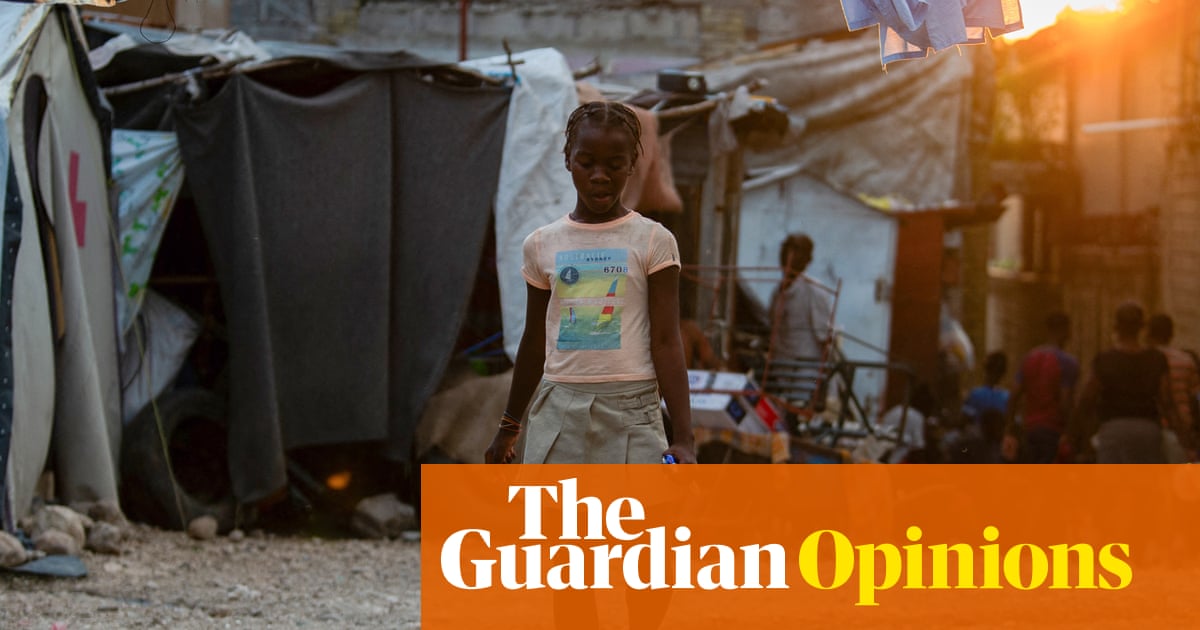The list of countries banned by theTrump administration’snewest orderseems to have no rhyme or reason. Little connects Afghanistan, Burma, Chad, Republic of the Congo, Equatorial Guinea, Eritrea, Haiti, Iran, Libya, Somalia, Sudan and Yemen, all targeted for a total ban, or Burundi, Cuba, Laos, Sierra Leone, Togo, Turkmenistan and Venezuela, all targeted for restrictions. The reasoning stated in the order is that they all pose security threats measured by “whether each country has a significant terrorist presence within its territory, its visa-overstay rate, and its cooperation with accepting back its removable nationals”.
Visa overstays, the order elaborates, “indicates a blatant disregard for United States immigration laws”. Yet thelatest dataon overstays from Customs and Border Protection does show these countries high on the list, along with others not included.
If we sit with this list a little longer, though, with attention to the history of the world we share, we can see a different unifying logic. All of these countries are in the global south, their citizens are racialized as Black or brown andMuslim. Most have high poverty rates that hover at or above half their population. Several have recently been sites of social upheaval or horrific wars. Yemen, Sudan, Somalia and Afghanistan, for example, all appear on the World Food Program’s list of the world’smost dire food crises.
These facts do not, as the travel ban assumes, tell of the inherent violence of people from these nations, nor of a penchant to “disregard” law. In fact, even the data on overstays says nothing of people’s legal status. Nationals ofAfghanistan, Burma, El Salvador, Haiti, Somalia, Sudan and Venezuela have long had a right to apply for temporary protective status due to the insecurity of their countries. We do not know how many of the so-called “overstayers” applied for other protections like asylum.
The poverty and insecurity of these nations are mainly an indication that they have been subject to imperialism, including US military and economic intervention and coercion.
You cannot understand the endemic violence or economic destitution that forces people to leave Haiti without attending to both theFrench extortionof the island nation in exchange for their freedom from enslavement, and theUnited States’ occupationof it. You cannot understand the mass exodus of people from Afghanistan, one of the world’slargest refugee populations, without understanding the United States’ funding of theMujahideen, or the so-called “war on terror”, that did little more than further destabilize the nation. Iran’s current regime is only possible because the US supported British efforts indestroying Iranian democracyto save British Petroleum.
US sanctions, whether in Iran orVenezuelaor in Cuba, have not contributed to pressuring regime change, but rather to economic devastation and massdisplacement. American shrapnel has beenpulled from the bodiesof Yemeni children. Since March,250people have been killed in US strikes on Saada and Sanaa, at least 68 of whom were detained African migrants.
Time and time again data shows that African countries such as oil-rich Equatorial Guinea and Chad, ravaged bycompanies such as Exxon Mobile, and gold-rich Sudan, are not victims of poverty, but victims of theft. TheUnited Nationsestimates that $86bn leaves the continent each year in “illicit financial flows”, or theft through criminal activities and tax evasion. What’s more, between 1970 and 2022, countries in the global south, including those on this list, are estimated to have paid more than$2.5tnin interest alone to the benefit of the global north. Thomas Sankara, a former president of Burkina Faso, once called debt a “skillfully managed reconquest of Africa”.
The wealthiest nations in the world arecausing the climate crisisthat the poorest nations pay for. Climate activists estimate that governments in the global north owe $5tn each year to countries in the global south for the devastation they are causing them.
Seen from this vantage, Trump’s travel ban, which proudly cites what came to be known as the “Muslim ban” of his first administration in its opening paragraphs, is a cruel escalation of a longstanding policy of profiting off Black and brown lives and disposing of the most vulnerable among them.
In displacement camps in New York and Tijuana and the Aegean islands of Greece, I have met pharmacists, artists, DJs and journalists from many of the targeted countries. Just this week I spoke to a political activist who, forced to flee a massacre in one of the targeted countries, left her three young children behind. Speaking to me after the issuance of this ban, she worried whether she would be able to secure her asylum, which is currently being adjudicated, and whether she could ever reunify her family. Her voice broke as she said: “I wish they could understand that I never wanted to come here.”
Trump justified the ban by referencing arecent incidentin which an Egyptian man in Boulder, Colorado, injured 12 people calling for the release of Israeli hostages (though notably Egypt is not on the list). That this one act justifies the banning of millions of people is absurd. This latest ban is simply another installation in a series of policies meant to “Make America white again”, following a ban on asylum and acancellationof humanitarian parole. It comes as attacks on our immigrant students continue, particularly those who dare speak out against the US funding of Gaza’s decimation.
It is not the people of these nations that are a threat to the security of the United States. It is the United States that has long been a threat to them, robbing them of their wealth, destroying their institutions and environments, and then denying them participation in the safety built at their expense. We should be atoning for our sins, not exacerbating them.
